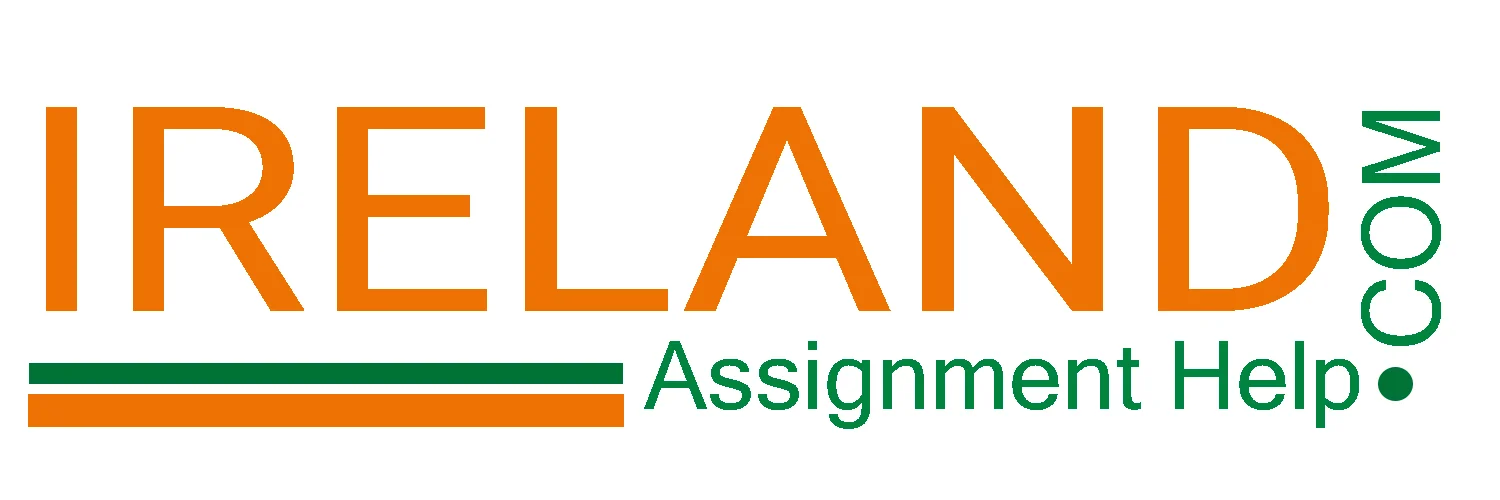Trauma-Informed Care Learning Guide Ireland
In Ireland, the need for a trauma-informed approach has never been more pressing. From the lingering effects of historical events to contemporary challenges, trauma touches many aspects of Irish society. This comprehensive guide explores how Trauma Informed Care (TIC) can be implemented across various sectors in Ireland, creating a more empathetic and effective approach to healing and support.
Trauma is a deeply distressing or disturbing experience that overwhelms an individual’s ability to cope. It can result from various events, including physical or sexual abuse, neglect, violence, accidents, natural disasters, or significant loss. Trauma affects not only the individual who experiences it directly but can also impact families, communities, and even generations.

The Irish Trauma Landscape
To understand the importance of TIC in Ireland, we must first acknowledge the unique trauma landscape of the country:
- Historical Trauma: The impact of events like the Great Famine and the Troubles in Northern Ireland continue to resonate through generations.
- Institutional Abuse: The legacy of abuse in religious institutions has left deep scars on individuals and communities.
- Economic Challenges: Periods of economic hardship, including the recent housing crisis, have created new trauma for many Irish citizens.
- Social Issues: Ongoing challenges such as addiction, homelessness, and domestic violence contribute to trauma in contemporary Irish society.
- Cultural Shifts: Rapid societal changes, including immigration and secularization, have led to identity-related stressors for many.
Understanding this complex tapestry of trauma is crucial for implementing effective TIC strategies across Ireland.
Core Principles of Trauma Informed Care
At its heart, TIC is an approach that asks, “What happened to you?” rather than “What’s wrong with you?” It recognizes that trauma is pervasive and that our systems and services must be designed with this awareness in mind. The core principles of TIC, adapted for the Irish context, include:
- Safety: Ensuring physical and emotional safety in all interactions and environments.
- Trustworthiness and Transparency: Building and maintaining trust through clear communication and consistent actions.
- Peer Support: Recognizing the healing power of shared experiences and community connections.
- Collaboration and Mutuality: Sharing power and decision-making between service providers and service users.
- Empowerment, Voice, and Choice: Fostering a sense of control and autonomy for individuals in their healing journey.
- Cultural, Historical, and Gender Issues: Recognizing and addressing the unique experiences of different groups within Irish society.
Hire an Irish Assignment Writer to Write your Essay, Thesis & Other Academic Papers
Implementing TIC Across Irish Sectors
Healthcare: Irish healthcare professionals are at the forefront of trauma response. Implementing TIC in healthcare involves:
- Training staff to recognize signs of trauma, including subtle cues
- Creating calming environments in hospitals and clinics
- Developing trauma-sensitive policies for patient care and staff well-being
- Integrating mental health support into primary care services
Social Services: Social workers and community support staff play a crucial role in TIC. Key focus areas include:
- Building trusting relationships with clients through consistent, empathetic interactions
- Creating safe spaces for service users, both physically and emotionally
- Empowering individuals by involving them in decision-making processes
- Collaborating with other agencies to provide comprehensive support
Education: Schools are often the first line of defence in recognizing and addressing childhood trauma. TIC in education involves:
- Training teachers and staff to identify signs of trauma in students
- Implementing classroom strategies that support emotional regulation
- Developing school-wide policies that prioritize student well-being
- Engaging families and communities in trauma-informed practices
Criminal Justice: The justice system can often be re-traumatizing for individuals. TIC in this sector focuses on:
- Training law enforcement in de-escalation techniques and trauma recognition
- Creating trauma-informed court processes that prioritize healing and rehabilitation
- Developing support systems for individuals transitioning out of the justice system
Cultural Considerations in Irish TIC
Implementing TIC in Ireland requires a nuanced understanding of the country’s cultural landscape:
- Religious Influence: Despite declining church attendance, religious beliefs still play a significant role in many Irish communities. TIC approaches must respect these beliefs while addressing trauma related to religious institutions.
- Rural-Urban Divide: Access to services and community support can vary greatly between urban and rural areas. TIC implementation must account for these differences.
- Changing Demographics: With increasing immigration, TIC must be culturally responsive to diverse populations while addressing potential trauma related to displacement and integration.
- Traditional Values vs. Modern Expectations: The rapid societal changes in Ireland have created a tension between traditional values and modern expectations, which can be a source of stress and trauma for many.
Scared with Looming Deadline, Buy Plagiarism Free Paper Writing Services Now
Training and Professional Development
To ensure effective implementation of TIC across Ireland, a robust training and development framework is essential:
- National TIC Curriculum: Develop a standardized, evidence-based curriculum for TIC training across all sectors.
- Continuous Professional Development: Offer ongoing training opportunities to keep professionals updated on the latest TIC research and practices.
- Cross-Sector Collaboration: Encourage knowledge sharing and collaboration between different sectors to create a more integrated approach to TIC.
- Supervision and Support: Implement regular supervision and support systems for professionals working in trauma-heavy environments to prevent burnout and secondary trauma.
Measuring Success and Driving Improvement
To ensure the effectiveness of TIC implementation in Ireland, it’s crucial to:
- Establish Clear Metrics: Develop specific, measurable indicators of success for TIC implementation across different sectors.
- Regular Evaluation: Conduct ongoing assessments of TIC practices and their impact on service users and providers.
- Feedback Loops: Create mechanisms for continuous feedback from service users, staff, and community members.
- Research Partnerships: Collaborate with Irish universities and research institutions to conduct rigorous studies on the effectiveness of TIC in the Irish context.
Challenges and Future Directions
While the implementation of TIC in Ireland holds great promise, it also faces several challenges:
- Resource Allocation: Securing adequate funding and resources for comprehensive TIC implementation across all sectors.
- Systemic Change: Overcoming resistance to change in established systems and institutions.
- Cultural Adaptation: Ensuring that TIC approaches are culturally appropriate and effective for all communities in Ireland.
- Policy Integration: Incorporating TIC principles into national and local policies across various sectors.
Looking to the future, key priorities for advancing TIC in Ireland include:
- National TIC Policy: Developing a comprehensive national policy on TIC implementation across all relevant sectors.
- Education Integration: Incorporating TIC principles into educational curricula for all helping professions.
- Public Awareness: Launching public education campaigns to increase understanding of trauma and its impacts.
- Innovation in Service Delivery: Exploring new models of trauma-informed service delivery, including digital interventions and community-based approaches.
Get 100% Unique Assignment Papers for Your College & Get Good Grades
Conclusion
Trauma Informed Care represents a paradigm shift in how we approach healing and support in Ireland. By recognizing the pervasive impact of trauma and implementing TIC principles across all sectors, we can create a more compassionate, effective, and resilient society. This journey towards a trauma-informed Ireland requires commitment, collaboration, and continuous learning from all stakeholders. As we move forward, let us remember that at the heart of TIC is a simple yet powerful idea: understanding, empathy, and support can transform lives and communities.
By embracing Trauma Informed Care, Ireland has the opportunity to lead the way in creating a society that not only acknowledges the impact of trauma but actively works to heal and prevent it. This is not just an investment in individual well-being but in the future of the nation as a whole.
Hire Proficient Academic Writers For Trauma-Informed Care Learning Guide in Ireland
The students stressed about academic assignments in Trauma Informed Care courses should contact Irish writers. The professional team of Ireland assignment help offers students with standard quality and plagiarism-free solutions. The expert writers have tremendous knowledge due to which they are capable of delivering the best assignment help online. Moreover, the Irish writers deliver their assignment work on time so that the students can submit it before the final date of submission.
Frequently Asked Questions (FAQs)
1. What are the key principles of trauma-informed care in Ireland?
To be fair, the heart of it’s simple enough — you stop asking “What’s wrong with this person?” and start wondering “What’s happened to them?” That tiny shift changes everything. The main ideas are safety, trust, collaboration, and giving people some say in what happens next. In Ireland, you also can’t ignore history or culture — we carry plenty of it — so a trauma-informed approach means keeping that in mind every time you work with someone.
2. How can trauma-informed care be built into Irish healthcare?
It’s starting to happen, slowly. You’ll see nurses or GPs in HSE clinics taking a few extra minutes, checking if the person feels alright before diving into questions. Hospitals are setting up quieter rooms, using softer lighting, simple language, that sort of thing. It’s not fancy theory — just trying to make care feel human again, especially for anyone who’s already been through the wringer.
3. What training programmes for trauma-informed care exist in Ireland?
There are a fair few now. The HSE runs in-house sessions; Maynooth, UCC and Trinity offer short courses; and local ETBs or charities like Barnardos hold workshops for staff. They’re usually very down-to-earth — stories, reflection, real case bits — not a pile of slides. Most people leave thinking differently, which is kind of the whole point.
4. How does trauma-informed care change mental-health treatment in Ireland?
It softens it, honestly. Instead of ticking boxes, therapists start with trust — making sure the person feels safe in the room. That alone can settle someone who’s been burnt by the system before. The HSE’s community teams are picking it up too, using it to keep services from feeling cold or clinical. It’s about listening properly, not fixing fast.
5. What makes it hard to bring TIC into every Irish sector?
Time, mostly. Services are already stretched, and training takes headspace people don’t always have. Then there’s habit — systems like the old ways. What suits a big hospital in Dublin mightn’t work in a small centre in Mayo. Still, people are trying. Every year, there’s a few more teams who “get it” and start doing things differently.
6. What are the five principles of trauma-informed care?
Most folks talk about safety, trust, collaboration, empowerment, and choice. You could add culture and history if you’re looking at Ireland specifically. They sound grand on paper, but really it’s everyday stuff — keeping your promises, letting people talk without cutting across them, giving them a say. Small things, big difference.
7. What are the three types of stress?
There’s positive, tolerable, and toxic. Positive’s short bursts — like a bit of pressure before an exam. Tolerable’s heavier, but you bounce back if you’ve support. Toxic’s the rough one, the kind that hangs around — ongoing abuse, fear, neglect. That’s the sort that shapes people long-term, and trauma-informed work tries to stop it getting that far.
8. Do I need to include historical trauma in my TIC essay?
Yes, definitely. Irish history, like the Great Famine or institutional abuse, still affects communities today. Including examples shows you understand trauma isn’t just personal—it’s cultural and intergenerational.
9. How can I explain TIC principles without making my essay sound robotic?
Usually, break it down into core ideas like safety, trust, peer support, and empowerment. Throw in a local example, like how a Dublin youth service builds trust with clients—it makes your essay read naturally.
10. Can someone do my TIC assignment and cover all the sectors in Ireland?
Yes, but make sure healthcare, social services, education, and justice sectors are mentioned. Even citing a local initiative, like trauma-sensitive classrooms in Cork, adds an Irish context and makes your essay richer.
11. How do I include cultural considerations in my TIC essay?
Highlight things like rural-urban differences, immigration, and religious influences. For instance, understanding trauma linked to institutional religion while respecting current beliefs shows depth and cultural awareness.
12. What examples can I use for training and professional development in TIC?
Mention the national TIC curriculum, ongoing CPD for HSE staff, or workshops in NUIG and UCD social care courses. It shows you know Ireland has formal learning pathways, not just theory.
13. Can someone help me write my essay on trauma-informed care in Irish healthcare settings?
Yes, that’s easy sorted. The team at Ireland Assignment Help can guide you through writing essays that link trauma-informed care to real Irish healthcare practices. They’ll help you connect principles like safety and trust to HSE policies, patient care examples, and proper academic referencing — all fully plagiarism-free and Turnitin-safe.
14. How can I discuss measuring success in TIC for my assignment?
Talk about metrics like client feedback, reduced re-traumatisation, or evaluation reports. Even referencing a local study or partnership with Irish universities makes your point credible.
15. Are there future challenges I should cover in my essay?
Definitely. Include funding gaps, systemic resistance, and cultural adaptation. Highlighting ideas like integrating TIC into school curricula or public awareness campaigns shows you’re thinking ahead.
16. How do I make my TIC essay stand out to lecturers in Ireland?
Keep it practical. Use real-life Irish examples, link principles to local services, and reflect on outcomes. Personal insights or case scenarios, like trauma-informed youth programmes in Limerick, give your essay authenticity.
You can check AI-Free Assignment Help in Ireland for expert support. Their writers specialise in turning robotic drafts into natural, human essays that fit QQI and university standards. They’ll add Irish context, case studies, and realistic examples to make your trauma-informed care assignment sound completely authentic.


